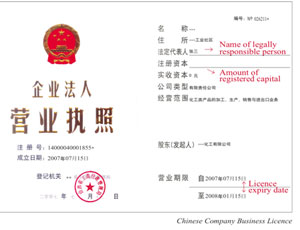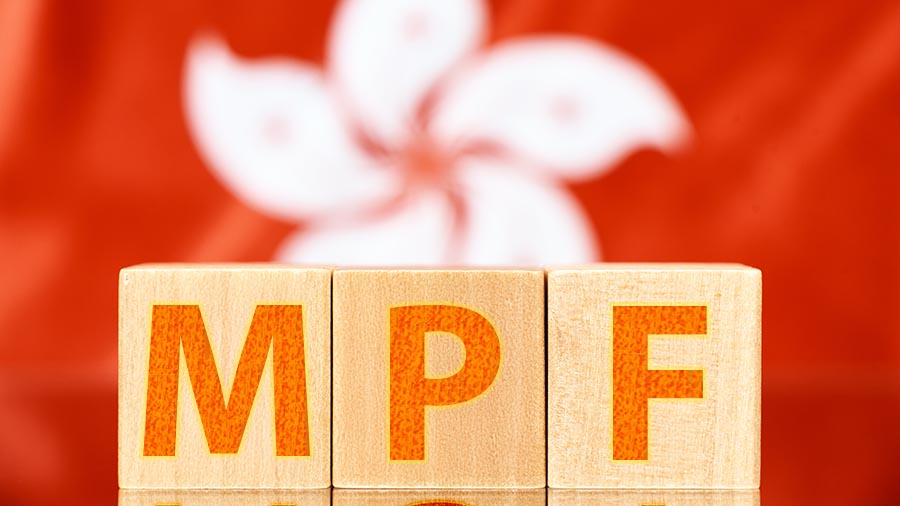China Due Diligence You Can Conduct Yourself
Part One in a four part series
Op-Ed Commentary: Chris Devonshire-Ellis
Feb. 3 – Over the 19 years of working with Dezan Shira & Associates in China, we have seen many cases of troubled investors in our dealings with foreign investors in the country. Some of these, regrettably, have proved terminal and the venture had to close. Contrary to the beliefs of many, lawyers and accountants do not want to see businesses with problems. At Dezan Shira, clients who are profitable and on-track with their investment are a far greater source of sustainable income than those with problems. It’s also true to say that of the many troubleshooting cases we’ve been involved in, 90 percent could have been avoided by the deployment of due diligence at the front end of the investment planning. That initial work upfront would have almost certainly have thrown up red flags that would have altered the destiny of the investment and made it far less prone to inherent problems. In this article, I begin by pointing out some of the areas and attitudes concerning investment into China that can hinder a sensible approach to due diligence. The process does not have to be expensive and there is much the savvy investor can do to limit his risk. We point out areas of basic due diligence an investor can conduct himself and also look at common technical due diligence mistakes and assumptions foreign investors can make in China. Due diligence, due diligence, due diligence. The six D’s foreign investors must carry with them in a box of things to do that need to be crossed off their investment check list. Not to do so is largely negligent, and problems that occur that so many expatriates like to tell horror stories about can usually be avoided.
I start with reasons why investors shy from due diligence, followed by basic checks, examples of hidden areas of risk, and then some basic steps that can be taken at no cost.
General Poor Attitude Concerning Due Diligence
A tendency in China when it comes to due diligence is essentially a lack of professionalism, a desire to make a quick market entry, a refusal to invest in any reasonable homework or due diligence expense and an under-appreciation of how savvy the Chinese can be when it comes to the law.
A Devil-May-Care Attitude of Many Foreign Investors & Buyers in China Who Simply Accept What They Are Told – and Then Get Badly Burnt
I recall a potential Western client who, when warned about the need to conduct due diligence on his Chinese JV partner prior to signing contracts informed me, “I know all about international due diligence, I once set up a JV in Haiti so am familiar with what goes on.” Quite apart from the fact that Haitian law is completely different from Chinese law, not to mention the business culture, it was a classic example of ego getting in the way of homework. “I know what I’m doing.” That may be true. But if the Chinese know what they’re doing more than you do, and this is an away match on their soil, then you’d better get your knowledge base up to speed for local conditions. The potential client didn’t buy our due diligence services, and set up the JV himself. It went broke after a year. It was a clear case of investor arrogance—insisting he knew what he was doing despite having no China experience—that got this investor into trouble. Individual egos can interfere with due diligence requirements.
A Lack of Moral Fiber in Chinese Society That Makes Fraud Acceptable, Particularly When it Involves Foreigners
The previous century of turbulence, civil strife and domestic persecution in China has lead, in part, to an ingrained Chinese mentality of taking what you can for yourself first, family second, and China third. Foreigners are still largely from outside the Great Wall and are fair game. In fact, the 20 years of foreign direct investment in China must, to some, have seemed like the world’s longest open season for big game hunting ever on record. Many Chinese are honest. It’s the ones that are not—and with 1.3 billion people, there are rather a lot of them—that you need to be aware of. I recall a German JV, whose senior management, impressed with the police escort from the airport, the ownership of a local five star hotel, and the ability to get documentation sorted, prevented any concept of due diligence taking place. “It’s simply not necessary with people like this” was the reply. Two years later, the same Chinese partner was in jail and the JV forced to buy back his 50 percent shareholding as the money invested in it had been stolen. That cost the German investors US$20 million more than they had intended and placed the JV in a position they are unlikely ever to recover their investment from. In looking at the case, it would have taken only two weeks homework to uncover the fact that the Chinese partner’s money just simply wasn’t really there.
The “Guanxi System” of Chinese Networking and Relationships, and its Abuses and Pitfalls
China’s regulatory system does not rely on guanxi and neither should you. Just because a local mayor gives you his blessing and says “I’ll look after you” does not mean you should not conduct your homework, and I must have met so many people who “confidentially” told me they were connected with the provincial governor. So what? Is he going to work on the factory shop floor?
Government officials are often deployed as quasi salesmen, trying to get you to spend money in their city or province. They even have sales targets to meet. Having good relations is one thing, but you still need to do your homework. In the most cynical cases, officials themselves can even collude with local businessmen to defraud investors, especially over land use rights issues. When officials start to get involved, you definitely need to check out what is actually being offered to you.
The Oblique and Contradictory Nature of China’s Laws and Regulations
There is a lack of essential trust amongst many Chinese concerning the law of the land when it comes to protecting their own rights. The commercial Chinese are smart enough both to understand it and also smart enough to abuse it, when it suits them. They will use the law, both for and against you, as it pleases them. That means you need advice from someone who truly understands Chinese investment law, the implications and the details of to what you are being asked to commit. If you do not understand the nuances, the balance tips heavily in favor of the Chinese side—and they will exploit this to their advantage, not yours. Quite simply, there is a seemingly contradictory ability for Chinese nationals to, when it suits them, ignore or subvert the regulatory process, yet when it suits them the other way, fully appreciate and use the letter of Chinese law to its fullest extent.
A Lack of Regulatory Enforcement or System of Punishment To Those Who Err or Seek to Defraud
China does not have an independent judiciary, which means that even its regulatory bodies do not possess the ultimate power to punish. This can only happen with government approval. If you are in dispute with a state-owned enterprise, it can be very difficult and very expensive to argue a case. Relying on the legal system in China to solve any disputes therefore is fraught with difficulties. It is far better to conduct due diligence up front to minimize risk of any future dispute occurring.
The Difficulties of Following Written Chinese Language When it Comes to Understanding Any of the Above Issues
I’ve seen clients, who, after having signed documents in China, asked me to translate them later. Er…it’s the other way around, guys. Do not sign documents without understanding them. Don’t be pressured into signing anything. Do it at your own pace, and in your own time, when you are satisfied all is in order. Consequently, faced with a seemingly never ending and daunting challenge when it comes to understanding the nature of due diligence in China, many foreign businesses simply just don’t conduct any, and accept business largely on trust. While there are many Chinese who are trustworthy and honorable, just like anywhere else, there are those who are not, or who, due to influencing circumstances (such as decreasing profit margins), may let their standards and ethics slip.
However, when called in to examine problems in business in China, I have come to the conclusion that 90 percent of them could have been avoided. All it would have taken would have been some upfront due diligence. And by and large, the silly thing is that it doesn’t have to be expensive or time consuming.
Purchasing product from China
The international press has had a field day over the years in reporting serious quality control issues arising from the poor standards of Chinese made products. Many are very serious indeed; from tainted food, to toxic materials found in popular products. These can also lead to litigation from consumer groups or customers back home. Quality control is one issue of course, and being technically specific, I will not deal with it here other than to say that of course it is your responsibility as a buyer to ensure that the product you are purchasing meets the legal requirements of your own nation’s legal standards. But there are other issues that can and do affect the purchasing process and if understood and rectified, can reduce the risk.
Profit Margins
Since China joined the WTO, one effect has been to introduce increased competition into domestic industry. The Chinese tend to have a knee-jerk reaction to this and automatically reduce prices. It is also true to say that many international buyers perform highly aggressive negotiating and purchasing policies that are intended to get the best possible financial deal for the buying entity. Some indeed, are utterly rapacious. There is a link between aggressive purchasing and quality risks, and it has largely been ignored. But squeeze the manufacturers too much, with wafer thin or even no profit margin capabilities, and the pressure and incentive arises for the manufacturer or their supply chain to cut corners. I see it essentially as a moral issue—you need to allow your supplier to make a reasonable dollar out of your business. If you do, it will keep them honest and more committed to you.
If not, there is a risk of the following equation occurring:
a) Aggressive Pricing x Reduced Profit Margins = Cost Cutting By Supplier
b) Reduction in Quality + Minimal QC Checks = Risk Of Contamination
a+b = c Toxic / Substandard Products
c = Risk of Litigation
Due diligence here can also be measured financially: the cost of litigation and award payouts set against purchasing costs. There are case studies, and if this hasn’t affected your business yet—then you may well be wise to look at cases involving other unfortunate businesses that ignored this aspect.
 Registration Pointers Concerning Legitimacy
Registration Pointers Concerning Legitimacy
The above issues are all intangibles that may not necessarily be familiar to the new to China investor. Nonetheless, they have been gleaned from close to twenty years experience in China, and should not be taken lightly. There are other areas in which due diligence can be undertaken, and that is to compare the business license of the Chinese company to the information you’ve been told about them. Such data is useful as the license determines the legal limited liability of the company, in addition to confirming other useful details such as registered legal person, registered address and their permitted scope of activity. In China, registered capital is also the amount of legal limited liability.
“Conducting Operational Due Diligence in China”, the next piece in our four-part series, will follow tomorrow.
Chris Devonshire-Ellis is the founding partner of Dezan Shira & Associates. The practice assists foreign investors in the China market, providing legal, tax, and due diligence services from ten offices throughout China. For more information, please email the firm at info@dezshira.comor download the practice’s brochure here
- Previous Article China Clarifies Urban Land Use Tax and Real Estate Tax Issues
- Next Article China Operational Due Diligence




























